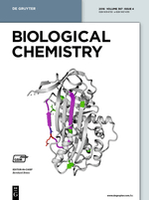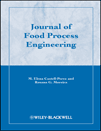
PROCESS BIOCHEMISTRY
Scope & Guideline
Fostering collaboration in the realm of biochemical sciences.
Introduction
Aims and Scopes
- Biotechnological Innovations:
The journal emphasizes advancements in biotechnological processes, including enzyme technology, microbial fermentation, and metabolic engineering, to enhance production efficiencies and develop novel bioproducts. - Sustainable Process Development:
Research published in this journal often focuses on sustainable practices in bioprocessing, including waste valorization, bioenergy production, and the development of green solvents and extraction methods. - Biochemical Characterization:
A core area of interest is the biochemical characterization of enzymes and other biocatalysts, exploring their properties, mechanisms, and applications in industrial processes. - Food and Nutraceutical Applications:
The journal includes studies related to food science, particularly in the extraction and characterization of bioactive compounds, functional foods, and their health benefits. - Environmental Biotechnology:
Research on the use of bioprocesses for environmental applications, such as bioremediation and waste treatment, is a significant focus area, showcasing the role of biotechnology in addressing environmental challenges. - Interdisciplinary Approaches:
The journal encourages interdisciplinary research that combines biochemistry with other fields such as materials science, nanotechnology, and computational biology to address complex biotechnological challenges.
Trending and Emerging
- Enzyme Engineering and Modification:
There is an increasing focus on the engineering and modification of enzymes to enhance their stability, efficiency, and specificity for industrial applications, driven by advancements in protein engineering techniques. - Microbial Consortia and Synergistic Interactions:
Research exploring the use of microbial consortia and their synergistic interactions for improved bioprocessing outcomes is gaining traction, highlighting the importance of ecological approaches in biotechnology. - Biomaterials and Nanotechnology:
The integration of nanotechnology in the development of biomaterials for drug delivery, tissue engineering, and biocatalysis is an emerging trend, showcasing the potential of nanomaterials in enhancing biotechnological applications. - Sustainable and Green Chemistry Approaches:
There is a marked increase in research focusing on sustainable and green chemistry practices, including the use of deep eutectic solvents and eco-friendly extraction methods, reflecting a broader commitment to environmental sustainability. - Bioinformatics and Computational Biology:
The application of bioinformatics and computational biology in predicting enzyme functions, metabolic pathways, and bioprocess optimizations is on the rise, indicating a trend towards data-driven research in biotechnology. - Valorization of Agricultural Waste:
Research on the valorization of agricultural waste into valuable bioproducts, such as biofuels, bioplastics, and biochemicals, is emerging, driven by the need for sustainable waste management solutions.
Declining or Waning
- Traditional Biochemical Methods:
There is a noticeable decline in the publication of studies focusing solely on traditional biochemical methods without incorporating innovative or interdisciplinary approaches. This suggests a shift toward more integrated methodologies. - Basic Enzymology Studies:
While enzyme studies remain important, there has been a decrease in basic enzymology research that does not link to practical applications or biotechnological advancements, indicating a preference for applied research. - Conventional Fermentation Techniques:
Research centered on conventional fermentation techniques without novel enhancements or optimizations is becoming less frequent, as the field moves towards more advanced and efficient fermentation strategies. - Single-Organism Studies:
Studies focusing exclusively on single organisms without broader ecological or metabolic context are declining, reflecting an increased interest in understanding complex microbial interactions and consortia. - Static Laboratory Studies:
The prevalence of static laboratory studies that do not simulate real-world bioprocess conditions is waning, as there is a growing emphasis on dynamic and scalable bioprocessing research.
Similar Journals

BIOTECHNOLOGY AND APPLIED BIOCHEMISTRY
Illuminating Pathways in Biotechnology Advancements.BIOTECHNOLOGY AND APPLIED BIOCHEMISTRY, published by Wiley, is a renowned journal that bridges the gap between fundamental research and practical applications in the fields of biochemistry and biotechnology. With an ISSN of 0885-4513 and an E-ISSN of 1470-8744, this journal has been instrumental since its inception in 1986, focusing on diverse topics including applied microbiology, drug discovery, and process chemistry. The journal is currently recognized in various categories with impressive quartile rankings, showcasing its influence with placements in Q2 for applied microbiology, biotechnology, and biomedical engineering, among others. Researchers and professionals benefit from its comprehensive scope and critical insights into the latest advancements in these domains. Although not an open-access journal, it provides invaluable access options for academic institutions and professionals seeking to stay at the forefront of biotechnology innovations. Its commitment to presenting quality research facilitates the growth of knowledge and fosters collaborations across disciplines, making it an essential resource for anyone invested in the rapidly evolving landscape of biosciences.

PREPARATIVE BIOCHEMISTRY & BIOTECHNOLOGY
Pioneering research for transformative biotechnological solutions.PREPARATIVE BIOCHEMISTRY & BIOTECHNOLOGY, published by Taylor & Francis Inc, serves as a vital platform for advancing research in the fields of biochemistry, biotechnology, and related areas of medicine. With an ISSN of 1082-6068 and an E-ISSN of 1532-2297, this journal has established itself with a notable Q3 ranking in the 2023 categories of Biochemistry, Biotechnology, and Miscellaneous Medicine, reflecting its relevance and contribution to these disciplines. The journal encompasses a wide range of topics, providing crucial insights into preparative methods, innovative biotechnological applications, and their implications for various medical advancements. Although not open access, the journal's rich content is crucial for researchers and professionals aiming to stay abreast of the latest developments and methodologies in biochemistry and biotechnology. With an enduring commitment to excellence since its inception in 1996, the journal remains an essential resource for academics and practitioners dedicated to advancing scientific knowledge and practical applications.

JOURNAL OF INDUSTRIAL MICROBIOLOGY & BIOTECHNOLOGY
Connecting Science and Industry for a Biotechnological RevolutionJOURNAL OF INDUSTRIAL MICROBIOLOGY & BIOTECHNOLOGY, published by Oxford University Press, is a vital resource for researchers and professionals actively engaged in the fields of applied microbiology, biotechnology, and bioengineering. With an ISSN of 1367-5435 and E-ISSN of 1476-5535, this journal has established itself as a leading platform for disseminating innovative research findings and advancing knowledge in industrial microbiology since its inception in 1996. As of 2023, it is classified in the Q2 quartile across multiple categories including Applied Microbiology and Biotechnology, Bioengineering, and Medicine, underscoring its significance in the academic community. Notably, it ranks 26th of 127 in Applied Microbiology and Biotechnology, placing it in the 79th percentile, indicative of its high impact and influence. Although it does not currently offer Open Access, it remains a key outlet for high-quality scholarly articles that align with the objectives of improving industrial practices through biotechnological applications. For those interested in the latest developments and methodologies within the realm of applied microbiology and biotechnology, this journal serves as an indispensable reference.

APPLIED MICROBIOLOGY AND BIOTECHNOLOGY
Advancing knowledge in applied microbiology and biotechnology.Applied Microbiology and Biotechnology, an esteemed journal published by Springer, serves as a vital resource in the domains of microbiology and biotechnology. With an impressive impact factor reflecting its quality, the journal holds Q1 rankings in various categories including Applied Microbiology and Biotechnology, Biotechnology, and Medicine (Miscellaneous) as of 2023. Spanning the years from 1984 to 2024, it underscores its commitment to disseminating groundbreaking research that addresses pressing challenges in health, agriculture, and environmental sustainability. The journal is rigorously indexed and holds respectable positions in Scopus rankings, notably within the top 15% of Applied Microbiology and Biotechnology and the top 15% in Biochemistry, Genetics, and Molecular Biology. Although it is not Open Access, its comprehensive articles, reviews, and short communications are indispensable for researchers, professionals, and students eager to advance their understanding and application of microbial processes and biotechnological innovations in real-world contexts.

BIOLOGICAL CHEMISTRY
Illuminating the Chemical Foundations of LifeBIOLOGICAL CHEMISTRY, published by WALTER DE GRUYTER GMBH, is a premier journal based in Germany focusing on the ever-evolving fields of Biochemistry, Clinical Biochemistry, and Molecular Biology. With a robust reputation reflected in its top quartile rankings (Q1) within both Biochemistry and Clinical Biochemistry categories, and a commendable Q2 ranking in Molecular Biology for 2023, this journal stands as a vital resource for researchers, professionals, and students alike. The journal spans a rich history dating back to 1881 and embraces contemporary scientific discourse, ensuring accessibility to critical findings and advances that shape the biological sciences. Although it is not an open-access journal, its impactful contributions and relevant insights continue to serve the academic community. With its ISSN 1431-6730 and E-ISSN 1437-4315, BIOLOGICAL CHEMISTRY remains committed to fostering a deeper understanding of chemical processes in biological systems, driving innovation and research excellence into the future.

Applied Biological Chemistry
Unlocking the Secrets of Life at the Molecular Level.Applied Biological Chemistry, published by SPRINGER SINGAPORE PTE LTD, is a premier open access journal that has been serving the biological sciences community since 2016. With an ISSN of 2468-0834 and E-ISSN of 2468-0842, this journal is committed to disseminating high-quality research in the fields of Biochemistry, Genetics, Molecular Biology, and Organic Chemistry. The journal holds a commendable position within the scientific community, ranking in the Q2 quartile for both Biochemistry and Organic Chemistry niches as of 2023. It aims to foster innovative research and facilitate discussions that propel the understanding of complex biochemical processes and molecular techniques. By providing open access to its contents, Applied Biological Chemistry ensures that valuable research is readily available to researchers, professionals, and students globally, encouraging collaboration and knowledge sharing in this rapidly evolving discipline. Its pivotal role in enhancing scientific communication in the Netherlands and beyond is further underscored by a steadily increasing impact in the academic arena.

BIOTECHNOLOGY LETTERS
Advancing the Frontiers of Biotechnology ResearchBIOTECHNOLOGY LETTERS is a prestigious peer-reviewed journal that has been at the forefront of biotechnology research since its inception in 1979. Published by Springer, this esteemed journal serves as a vital platform for disseminating cutting-edge research in the fields of applied microbiology, bioengineering, and biotechnology, with a focus on innovative methodologies and technologies. With an impact factor reflecting its critical contribution to the discipline, BIOTECHNOLOGY LETTERS resides in the Q2 and Q3 tiers of various scientific categories, placing it among the notable journals in the biotechnological landscape. Although it offers traditional access options and does not feature open access, the journal embraces a global readership, encouraging submissions from researchers, professionals, and students eager to explore the dynamic advancements in biotechnology. Situated in the Netherlands, it continues to shape the future of the field through relevant, impactful research that addresses contemporary challenges and opportunities in medicine and beyond.

Biochemical Engineering Journal
Pioneering Discoveries in Biotechnology and Environmental EngineeringBiochemical Engineering Journal, published by Elsevier, is an esteemed platform dedicated to advancing research in the fields of bioengineering, biomedical engineering, biotechnology, and environmental engineering. This journal, with ISSN 1369-703X and E-ISSN 1873-295X, has carved a niche for itself since its inception in 1998, boasting a commendable Q2 category ranking in multiple pertinent disciplines as of 2023. The journal's strong impact factor reflects its influence, with Scopus rankings placing it in the top quartiles across relevant fields including Environmental Engineering and Bioengineering. With a focus on both fundamental and applied research, it aims to inform and inspire academia and industry alike by disseminating high-quality studies, reviews, and innovative methodologies. Researchers and professionals are encouraged to explore this reputable journal to remain at the forefront of emerging trends and technologies in biochemical engineering.

JOURNAL OF FOOD PROCESS ENGINEERING
Transforming food processing with cutting-edge research.JOURNAL OF FOOD PROCESS ENGINEERING, published by WILEY, is a prestigious academic journal dedicated to advancing the field of food processing through innovative engineering research and practical applications. With an ISSN of 0145-8876 and an E-ISSN of 1745-4530, this journal serves as a crucial platform for researchers and professionals focusing on the intersection of chemical engineering and food science. Operating in the United States and established in 1977, it has gained a reputation for its rigorous peer-review process and high-quality publications, reflected in its Category Quartiles of Q2 in both Chemical Engineering (miscellaneous) and Food Science for 2023. The journal is also well-positioned within the Scopus rankings, holding the 104th spot out of 389 in Agricultural and Biological Sciences and the 82nd in General Chemical Engineering. While it currently does not offer Open Access options, the JOURNAL OF FOOD PROCESS ENGINEERING remains an indispensable resource for those looking to explore critical studies and developments that shape food processing technologies by the year 2024 and beyond.

ChemBioEng Reviews
Elevating Research in Biochemistry and Chemical EngineeringChemBioEng Reviews is a premier academic journal dedicated to advancing the fields of biochemistry, bioengineering, and chemical engineering. Published by WILEY-V C H VERLAG GMBH, this journal serves as an essential platform for researchers and professionals seeking to disseminate groundbreaking insights and innovations. With a remarkable impact factor and a solid reputation, it is ranked in the top quartile (Q1) across multiple disciplines, including Biochemistry, Bioengineering, and Industrial and Manufacturing Engineering. The journal's comprehensive scope covers the synthesis, analysis, and application of bioengineered solutions, making it a vital resource for anyone involved in process chemistry and technology. With an unwavering commitment to high-quality scientific discourse from 2014 to 2024, ChemBioEng Reviews is not only pivotal for the academic community but also contributes to industry advancements in filtration, separation processes, and the intersection of chemical and biological engineering.